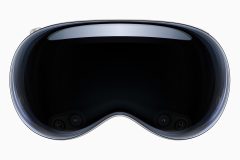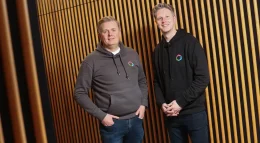This Article was published at IT World:
The Linux Foundation has announced a new event and a new emphasis for Linux: the inaugural Automotive Linux Summit.
The Auto Summit, which will happen on November 28 in Yokohama, Japan, is geared to “address the growing need for carmakers and Linux developers to collaborate on the future of computing on wheels.”
And, I would suspect, a chance to really try to showcase the in-vehicle capabilities of MeeGo and Tizen, two mobile platform projects stewarded by the Linux Foundation.
You don’t hear much about these platforms’ in-vehicle infotainment (IVI) features, except in press releases about the platforms themselves, where we all die a little bit inside when we read the word “infotainment.” But it’s as good a term as any to describe the class of devices that have come as an option in cars in recent years, like seat warmers. OnStar, GM’s big revenue generator, and Ford Sync, an equivalent IVI platform powered by Microsoft’s Embedded Automotive operating system, are two examples of this kind of system.
From the days of Moblin, IVI has often been touted as a great platform for Linux-based systems, but to date there’s hasn’t been a lot of implementation.
That may be about to change. At the 2010 Google I/O, it was announced that Google’s Android would be the host for a new OnStar app that will connect with the onboard systems to handle things like open locked car doors, slow down stolen cars, and call 911.
At the time, the rumors were that GM would be swapping the QNX-based OnStar with a Linux- or Android-powered operating system running the OnStar interface.
Later in 2010, the GENIVI Alliance (which includes BMW, Delphi, GM, Intel, Magneti-Marelli, PSA, Visteon, and Wind River), announced that they had chosen MeeGo as the basis of their next reference release for app developers work with. A little over a year later, the project still seems active, but there’s been no word on any deployed apps. Tomorrow marks the start of the Alliance’s fifth annual meeting, so maybe we’ll see something on the wires this week.
Given all the talk about any sort of Linux-based system inside cars, it’s probably a big motivator for the Linux Foundation (and Intel) to get some action going in the automotive channel. That the event comes just after the announcement of Tizen, Intel and Samsung’s latest effort to generate a mobile platform to counter the success of Android. While officially Tizen doesn’t replace MeeGo, which will still exist and still has an IVI-complaint flavor according to GENIVI’s specs, Intel has all but abandoned any efforts to continue supporting MeeGo, favoring the HTML5-friendlier Tizen platform instead.
Which leaves us here, wondering if GENIVI will soon announce an IVI-complaint version of Tizen, to join the ranks of MeeGo, MontaVista’s, Canonical’s, and Mentor Graphics’ embedded Linux IVI systems.
The new event may be the next effort to jumpstart Linux’s automotive deployment. The event is touted as a “vendor-neutral business and technical conference [that] will bring together the brightest minds from the automotive industry, the Linux developer community, and the mobility ecosystem.”
Vendor-neutral? Perhaps. The Linux Foundation (disclosure: I used to work for them) is pretty good about not favoring one vendor over another at events. But the Steering Committee roll call makes me wonder just how vendor neutral this conference will be. “The Steering Committee is made up of representatives from DENSO Corporation, Intel, NEC, Nissan, Renesas, and Toyota, among others,” the press release reads.
Intel’s presence on the committee surely guarantees Tizen a prominent spot in the conference’s session tracks. MeeGo may also be present, if the Linux Foundation, which seems more interested in the future of MeeGo than Intel does, has any say in the matter.
This doesn’t mean other IVI systems won’t be represented, just that Tizen most definitely will. And I don’t think even Intel’s tunnel vision about it’s preferred mobile platform will ultimately detract too much from the conference’s stated goal, to get carmakers and Linux developers working on the unique requirements of building an automotive platform.
The call for participation runs from now until Oct. 21, so we’ll have to see what kind of gas gets put into the Auto Summit’s tank. Hopefully a clean mixture, rich with all sorts of possibilities.
Source IT World
Most Popular Tech Stories
- Kelly Betting – How It Works and the Kelly Criterion Explained
- What are Pokies? – The Latest Guide to How Pokies Work in Australia
- AI industry needs annual revenues of more than the UAE’s GDP to offset costs
- Pepe Unchained Meme Token ICO Hits $2 Million – Could PEPU See a Post-Launch Surge Like PEPE?
- 4 Best Meme Coins to Buy with 100x Gains Potential – Top Picks for July 2024
Latest News
Does AI increase productivity at work? New study suggests otherwise
Artificial intelligence software reduces productivity and harms the working environment, according to a study from the freelance platform, Upwork. The findings appear to question how AI is being deployed at...

















